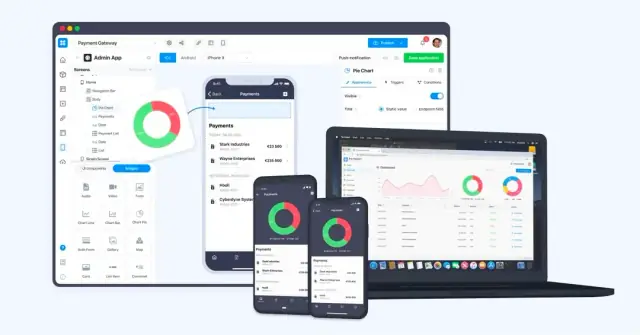The Impact of ERP Systems on SMEs
Discover how ERP systems influence the performance and growth of small and medium-sized enterprises (SMEs). Learn about the benefits, challenges, and potential solutions related to ERP adoption.

What is ERP and Its Relevance to SMEs
ERP, or Enterprise Resource Planning, is a comprehensive software solution that integrates and automates core business processes to help organizations manage resources more efficiently. The primary function of ERP systems is to serve as a central repository for all business information, enabling seamless data exchange between different departments and facilitating informed decision-making.
SMEs, or small and medium-sized enterprises, are businesses with up to 500 employees and less than $100 million in annual revenue. Like their larger counterparts, SMEs face challenges in managing resources and processes effectively to ensure competitiveness, profitability, and sustainable growth. As such, ERP systems have become increasingly relevant to SMEs, providing them with a comprehensive toolset for streamlining operations, enhancing information sharing, and driving data-driven decisions.
ERP systems for SMEs typically consist of various modules that cater to the unique needs of different industries and business functions. These modules may include finance and accounting, human resources, supply chain management, procurement, inventory control, and customer relationship management, among others. By integrating these modules, SMEs can achieve a consolidated and unified view of their entire business, which facilitates better decision-making and offers valuable insights to drive growth and success.
Benefits of ERP Systems for SMEs
There are several key benefits that ERP systems can offer to SMEs, some of which are outlined below:
- Process automation: ERP systems help automate many time-consuming and repetitive tasks, such as invoicing, order processing, and inventory management. This automation frees up employees to focus on more strategic and value-added activities, boosting overall productivity.
- Cost reduction: By streamlining operations, reducing manual work, and minimizing errors, ERP systems can help SMEs achieve cost savings. Additionally, ERP software offers improved inventory control, reducing stock levels and minimizing waste, which further contributes to cost reduction.
- Enhanced efficiency: ERP systems allow SMEs to monitor and manage their operations in real-time, leading to improved efficiency and reduced operational delays. Identifying and rectifying bottlenecks becomes easier, and the system's integrated nature ensures that changes and decisions are quickly propagated across the entire organization.
- Data-driven decision-making: With the ability to access real-time data and analytics, ERP systems provide SMEs with the insights needed to make informed strategic decisions. This data-driven decision-making can help identify areas for improvement, uncover new growth opportunities, and enable better planning for the future.
- Improved collaboration: ERP systems foster better collaboration among different departments by providing a single source of truth for business data. This centralized access to information ensures that all team members are working with the same data and insights, preventing miscommunication and enhancing cooperation across the organization.
- Scalability: As SMEs grow, their business processes and requirements evolve. ERP systems are designed to scale with the organization, ensuring businesses can seamlessly adapt to new challenges and take advantage of emerging opportunities. The modular nature of ERP systems enables SMEs to add or remove components as needed, effectively future-proofing their operations.
Challenges Faced by SMEs in Adopting ERP Systems
Despite the aforementioned benefits, SMEs may face various challenges when adopting and implementing ERP systems. Some of these challenges are listed below:
- High costs: ERP systems can be costly, especially for SMEs with limited resources. The upfront costs of software licenses, hardware, and implementation, as well as ongoing expenses for maintenance, upgrades, and training, can be a significant financial burden for small and medium-sized businesses.
- Inadequate customization: SMEs often have unique processes and requirements that might not be met by off-the-shelf ERP solutions. While ERP systems are highly customizable, customizing the software to fit the specific needs of an SME can be complex and costly.
- Fear of change: Implementing an ERP system typically necessitates significant changes in business processes and employee workflows. This can be a daunting prospect, and many SMEs might be reluctant to embrace this change due to concerns about disruption, downtime, or the perceived risk of failure.
- Lack of technical expertise: Many SMEs do not have dedicated IT departments or extensive technical expertise, which can make ERP system implementation and management challenging. This lack of expertise can result in longer implementation times, unexpected complications, and a higher total cost of ownership.
- Resistance to change from employees: ERP adoption invariably affects employees, who may resist the changes brought about by the new system. They may perceive the ERP implementation as a threat to their job security or feel overwhelmed by learning new processes and tools. Overcoming this resistance is crucial for successful ERP adoption.
How to Overcome ERP Implementation Challenges
Adopting an ERP system can be a challenging process, especially for SMEs with limited resources. However, there are strategies that can help overcome these challenges and ensure a successful ERP implementation. Below are five key steps to help SMEs embrace ERP systems with confidence:
Carefully Assess ERP System Suitability
Before investing in an ERP system, SMEs should thoroughly evaluate their business needs and the available ERP solutions in the market. They should consider factors like scalability, ease of integration, customization options, and the technology used in the ERP system. SMEs must also consider the total cost of ownership (TCO) for the ERP system; this includes the initial implementation costs, ongoing maintenance costs, and any potential hidden costs. By identifying an ERP system that is genuinely suited for their business requirements, SMEs can minimize the total costs and maximize the benefits brought forth by the system.
Establish Clear Goals and ROI Expectations
Setting clear goals, timelines, and return on investment (ROI) expectations for the ERP implementation is crucial for SMEs. They need to determine key performance indicators (KPIs) to measure the success of the ERP system based on their specific business objectives. This provides a clear roadmap for the implementation process and helps ensure that all stakeholders are aligned with the goals and expectations, reducing the risk of conflicts and misunderstandings.

Allocate Resources for the Implementation
SMEs should be realistic about the resources needed for a successful ERP implementation. This includes allocating a budget, dedicating personnel, and investing in training and change management efforts. ERP vendors may offer support and consultancy services, but it's also important for SMEs to build internal capabilities. Appropriate resource allocation not only helps ensure a smoother implementation process but also reduces the risk of delays, cost overruns, and other challenges that may arise during the project.
Involve Key Stakeholders and Employees
Involving key stakeholders and employees in the ERP implementation process is important to ensure buy-in, drive user acceptance, and facilitate a smooth transition. SMEs should create an ERP implementation team that consists of representatives from different departments, such as finance, operations, sales, and IT. This team should be responsible for gathering requirements, collaborating with the ERP vendor, and providing feedback throughout the implementation process. Employee training and open communication are essential for addressing potential resistance to the new system and enabling employees to embrace the changes brought by ERP adoption.
Seek Expert Advice and Support
Seeking external expert advice and support can help SMEs overcome any technical or strategic challenges during the ERP implementation process. This can include collaborating with ERP consultants, working with the ERP vendor's support services, or tapping into resources like discussion forums and webinars to gain valuable insights.
One growing trend in ERP adoption is the use of no-code and low-code platforms like AppMaster that allow businesses to customize their ERP system without needing extensive programming skills. This can ease the implementation process and lower the barriers to entry for SMEs.
Popular ERP Systems for SMEs
Several ERP systems have been specifically designed for the needs of small and medium-sized enterprises. Below is a list of popular ERP systems that cater to the needs of SMEs:
SAP Business One
SAP Business One is a popular ERP solution designed for small and medium-sized enterprises. It offers a comprehensive set of tools to help businesses automate their processes, enhance productivity and gain real-time visibility into their operations.
Odoo
Odoo is an open-source ERP software that offers a highly customizable and scalable solution to meet the diverse needs of SMEs. The platform provides a wide range of modules, including CRM, sales, inventory management, accounting, and HR.
Microsoft Dynamics 365
Microsoft Dynamics 365 is a suite of cloud-based ERP and CRM applications that cater to the needs of various industries, including SMEs. Dynamics 365 provides a range of functionality for finance, operations, sales, customer service, and more.
Oracle NetSuite
Oracle NetSuite is a cloud-based ERP platform specifically designed for growing businesses. NetSuite offers a comprehensive set of tools for businesses to manage their finances, inventory, customers, ecommerce, and more, all within a single platform.
AppMaster
AppMaster is a powerful no-code tool that allows businesses to create backend, web, and mobile applications. It provides SMEs with the flexibility to develop custom ERP solutions without the technical complexity of traditional software development. It enables organizations to streamline their processes and improve overall efficiency by visually creating data models, business processes, and APIs.

Embracing the Future of ERP Systems for SMEs
As the need for efficient business operations and data-driven decision-making grows in small and medium-sized enterprises (SMEs), so does the evolution of enterprise resource planning (ERP) systems. Modern ERP systems are increasingly designed to meet the unique requirements of SMEs, helping them adapt to ever-changing business environments and achieve growth. In this section, we'll explore the future trends in ERP systems for SMEs, including cloud-based systems, AI-driven analytics, enhanced mobility, and the increased use of no-code/low-code platforms like AppMaster.
Cloud-based ERP Systems
The shift towards cloud-based ERP systems is a significant trend that simplifies the overall implementation and running of these systems. For SMEs, this means lowering upfront costs and reducing the need for in-house IT expertise. Cloud-based ERP systems provide several benefits, including:
- Scalability: These systems can easily scale with the growth of your business, allowing SMEs to add new features, users, and modules as needed.
- Accessibility: Cloud-based systems offer remote access to ERP data from any internet-connected device, enabling SMEs to monitor and control business operations from anywhere.
- Data Security: Cloud-based ERP systems often come with strong security measures, safeguarding sensitive business information.
- Decreased Maintenance: With ongoing updates and improvements managed by the service provider, SMEs can focus on their core business functions.
AI-driven Analytics in ERP Systems
Artificial Intelligence (AI) is revolutionizing the way ERP systems analyze and process data. AI-driven analytics can automate data analysis, pattern recognition, and predictive modeling – providing SMEs with actionable insights that help drive growth. The incorporation of AI in ERP systems enables SMEs to:
- Enhance decision-making: With real-time insights, businesses can make informed decisions based on accurate data and forecasts.
- Improve process efficiency: AI can help automate repetitive tasks and processes, freeing up resources for more strategic initiatives.
- Drive innovation: By exploring vast data sets for patterns and trends, AI-driven analytics can reveal new business opportunities and areas for improvement.
- Mitigate risks: Predictive analytics can help SMEs anticipate potential problems and take preventive measures to avoid negative consequences.
Enhanced Mobility in ERP Systems
With the rise of mobile technology, ERP systems are increasingly embracing mobility, allowing SMEs to access their critical business data and perform essential functions on the go. Mobile-friendly ERP solutions can help SMEs:
- Stay connected: Access real-time data on smartphones or tablets, enabling faster decision-making and immediate problem-solving.
- Empower employees: Enable staff to work remotely, helping improve work-life balance and employee satisfaction.
- Improve collaboration: Facilitate seamless communication and collaboration between team members, regardless of their location.
- Increase productivity: Mobile ERP can help boost overall productivity by reducing downtime and streamlining workforce management.
No-code/Low-code ERP Systems
The rise of no-code and low-code platforms, like AppMaster, is a game-changer for SMEs looking to implement ERP systems. These platforms drastically reduce development time and costs, allowing businesses with limited resources to build customized ERP solutions that align with their unique requirements. With no-code/low-code ERP systems, SMEs can:
- Customize applications: Adapt ERP systems to specific business needs, ensuring a seamless fit with existing processes and workflows.
- Empower citizen developers: Enable non-technical users to create and maintain applications, reducing the reliance on IT staff and specialists.
- Accelerate development: Rapidly create and deploy new features and modules, ensuring SMEs remain agile and competitive in a fast-paced business environment.
- Lower costs: Save on development resources and reduce the financial burden of traditional ERP implementations, making these systems more accessible to SMEs.
In conclusion, the future of ERP systems for SMEs promises substantial advancements in technology and capabilities, enabling small and medium-sized businesses to maximize their operational efficiency and streamline decision-making. By embracing cloud-based systems, AI-driven analytics, enhanced mobility, and no-code/low-code platforms like AppMaster, SMEs can remain competitive in the ever-evolving business environment.
FAQ
ERP stands for Enterprise Resource Planning. It is a system that integrates and automates core business processes to help organizations manage resources more efficiently.
SMEs, like larger organizations, need to manage resources effectively to ensure competitivity and profitability. ERP systems help SMEs to optimize operations and make data-driven decisions, driving growth and success.
ERP systems help SMEs automate processes, enhance productivity, reduce costs, and improve efficiency. They also enable SMEs to access real-time data to support informed decision-making and better collaboration among departments.
SMEs may face challenges in ERP adoption such as high costs, inadequate customization, fear of change, lack of technical expertise, and resistance to change from employees.
To overcome challenges in ERP implementation, SMEs can carefully assess the suitability of ERP systems, establish clear goals, allocate resources, involve employees in the process, and seek expert advice.
Some popular ERP systems for SMEs include SAP Business One, Odoo, Microsoft Dynamics 365, and Oracle NetSuite.
Future trends in ERP systems for SMEs include cloud-based systems, AI-driven analytics, enhanced mobility, and increased use of no-code/low-code platforms like AppMaster.
Yes, there are many case studies available that showcase the success of ERP implementation in SMEs, enabling them to achieve significant improvements in efficiency, revenue, and overall performance.





